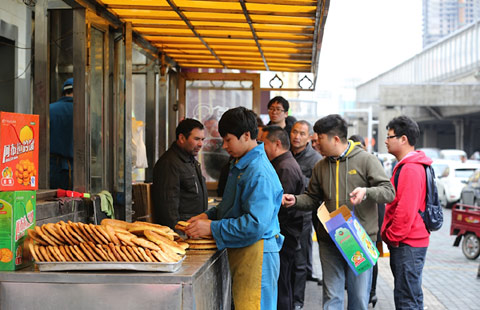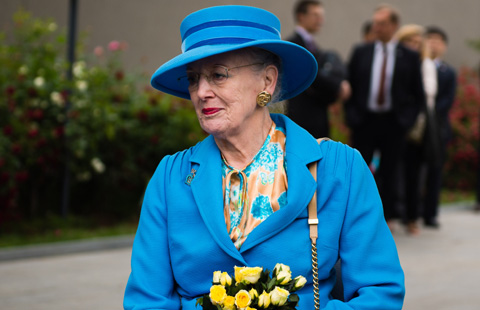Nations work together to reduce pollution
Updated: 2014-04-29 19:11
By ZHAO SHENGNAN in Seoul (chinadaily.com.cn)
|
|||||||||||
Despite the absence of a summit meeting between Beijing, Seoul and Tokyo, high-level officials from the three countries' environmental ministries gathered again, underlining their willingness for closer environment cooperation amid serious pollution in the region.
Japanese Environment Minister Nobuteru Ishihara, his South Korean counterpart Yoon Seong-kyu and vice-minister of China's environmental protection Li Ganjie concluded a two-day meeting on Tuesday in Daegu, South Korea.
During the 16th such meeting, the three sides laid out cooperation plans for the next five years, with the focus on preventing air pollution in China.
Ko Yun-hwa, administrator of Korea Meteorological Administration, said cooperation with China is important for South Korea as the country is affected by weather conditions in China.
"There is no desert in South Korea, so the sands here must come from Gobi or Mongolia, and our previous cooperation in sand prevention has been quite successful," he said.
"But as for the particulate matter, it is difficult to clearly calculate how much is from China and how much is locally produced," Ko added. "The situation differs day by day … . We want to have more information collected by radar meteorological and observation."
China has suffered severe air pollution in recent years, with thick smog blanketing the northern part of the country and concentrations of PM 2.5 pollutants, particulate matter with a diameter of 2.5 micrometers or less, exceeding hazardous levels.
Zhou Guomei, deputy director general of China-ASEAN Environment Cooperation Center under China's Ministry of Environmental Protection, said Japan faced similar environmental problems in the 1960s, as did South Korea in the 1980s.
The two countries have more advanced technology and experience in fighting pollution. China can learn from them by developing its green and recycling economy, Zhou said.
Teruki Watanabe, former president of Tianjin Dowa Green Angle Summit Recycling Co Ltd, said Japan can play a constructive role for China's efforts to boost its "promising" recycling economy.
Watanabe works for a Sino-Japanese joint venture, which recycles used televisions.
He said the technologies used in the venture are not "a big deal", but Japan keeps improving them. "If they are useful in China, both sides can learn from each other and make such projects mutually beneficially."
The company Watanabe led is one of dozens of such cooperation accomplishments in the Tianjin Ziya Circular Economy Industrial Area. The zone was initiated in 2005, and is now the largest of its kind in North China.
According to Tang Guilan, deputy director of administrative committee of the industrial area, about one quarter of the imported wasted materials for recycling in the area were from Japan and South Korea.
"Japanese like Watanabe have made a lot of contributions for technical innovation and policymaking. We hope more enterprises from Japan and South Korea will join us," Tang said.
Watanabe called for further optimization of China's Recycling Economy Promotion Law to reduce uncertainties for enterprises involved.
The law took effect in 2009, while a similar law in Japan has been practiced for around one decade.
Contact the writer at zhaoshengnan@chinadaily.com.cn
Related Stories
China to forecast air quality to reduce pollution 2014-01-29 14:29
Hebei faces huge cuts in steel capacity to reduce pollution 2013-12-28 08:15
Legislation speeded up to reduce pollution 2013-10-31 08:44
Central government: 5b yuan reward for reducing pollution 2013-10-18 08:13
Clean air action plan to reduce pollution 2013-09-12 11:08
People can help reduce pollution 2013-08-05 09:38
Today's Top News
Russia's FM scolds West for imposing sanctions
Obama's trip not to achieve goals
Media mogul interested in Clippers
Director enjoys overseas success
Philippine pact gives US access to air, sea bases
Hunt resumes for bodies inside ferry
Ukrainian mayor wounded by gunfire
Alibaba IPO: Could be the biggest ever
Hot Topics
Lunar probe , China growth forecasts, Emission rules get tougher, China seen through 'colored lens', International board,
Editor's Picks

|

|

|

|

|

|





